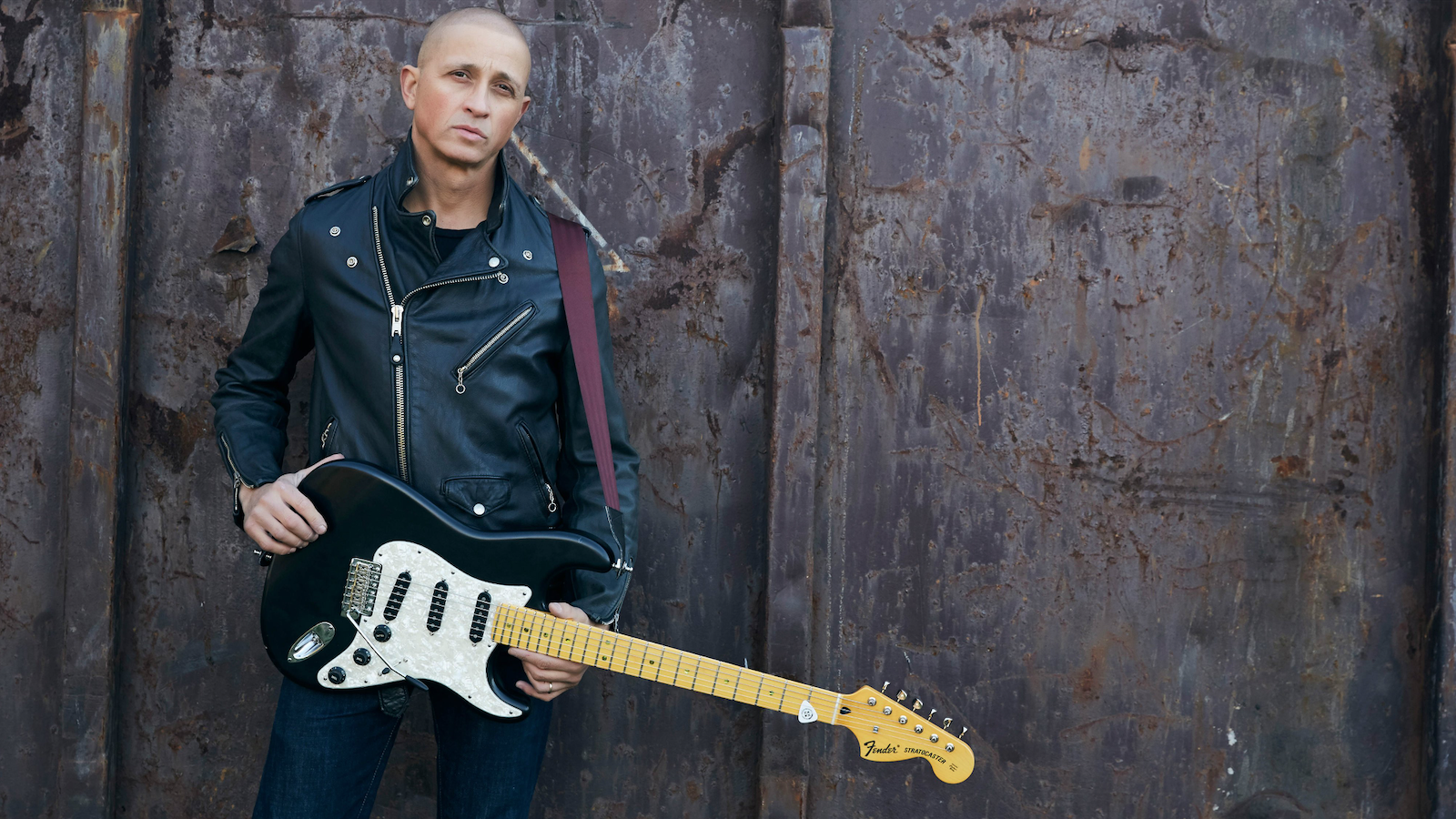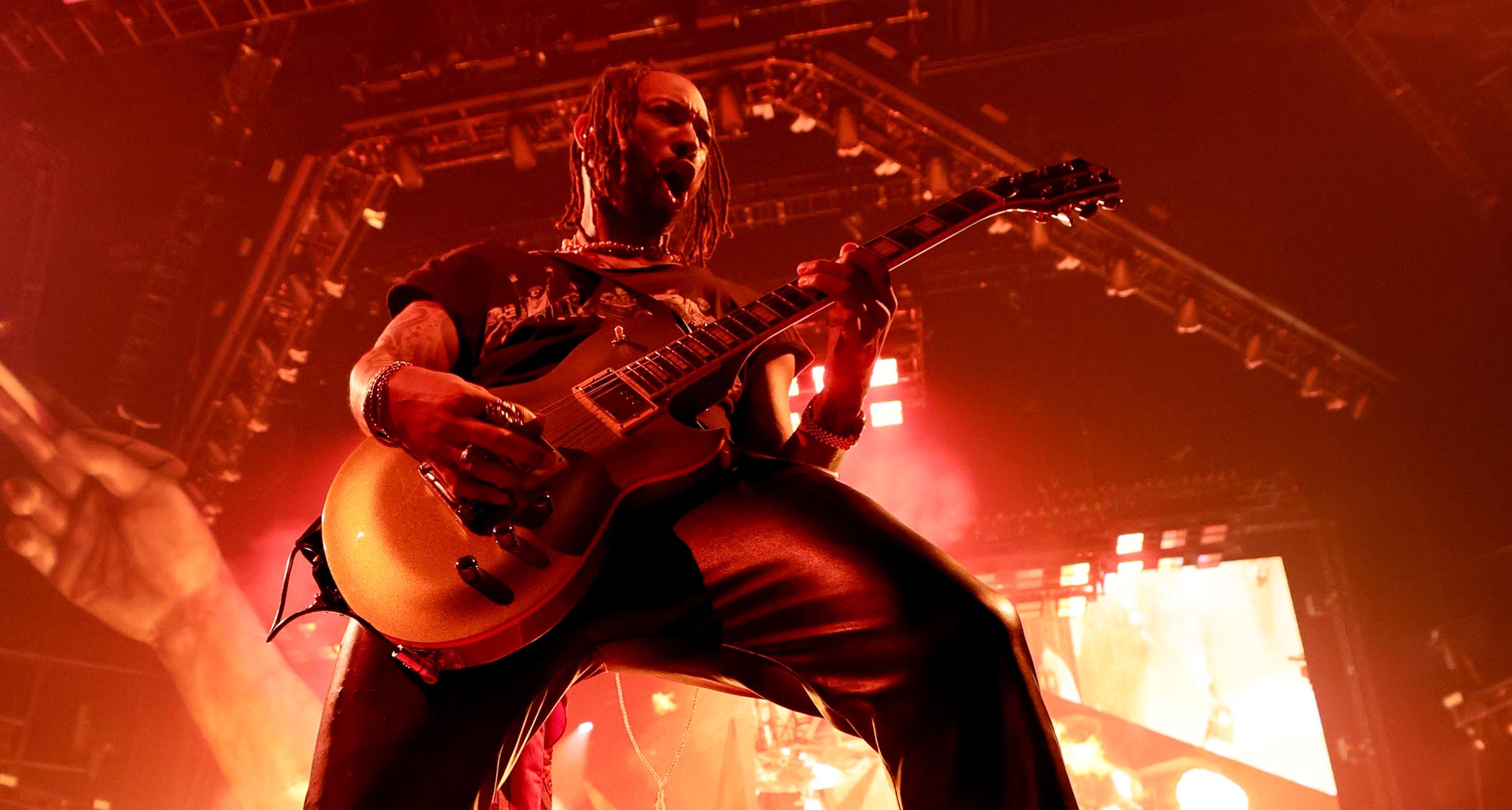Diesel: "I’ve been fascinated with the whole idea of suburbia since we moved from the place I grew up in..."
Diesel takes us for a ride through Sunset Suburbia: a piercingly poignant rock ’n’ roll paradise.

All the latest guitar news, interviews, lessons, reviews, deals and more, direct to your inbox!
You are now subscribed
Your newsletter sign-up was successful
Four years after dropping his aptly titled Americana record, Mark Lizotte (better known as Diesel) looks closer to home for inspiration on album no. 14: the sonically rich and searingly radiant Sunset Suburbia. The record itself builds on two EPs released throughout 2019 (both also sharing the same title) and shows a striking new side to the Perth‑native blues rocker – one that Australian Guitar was graciously allowed to prod at for a hot minute!
Suburbia is often represented as bland and domestic, which makes it an odd choice for a rock album; what is it about that setting and scenery you wanted to embrace?
The heart and soul of my fascination is really in the song “Sunset Suburbia” itself. But you’re right – whenever the word ‘suburbia’ is used, it’s always as part of a sentence that says something derogatory; nobody ever has a romantic view of suburbia. And that’s why the pairing of the two words together stands out: ‘sunset’ is a romantic word, generally, so there’s a really nice juxtaposition in the term ‘sunset suburbia’. I felt like that was enough for me to write a song about it, and then the rest of what I was coming up with seemed to go with that theme.
It’s sort of a look back on a lot of times in my life, even to the present day. My parents-in-law live across the road from me, in a dwelling that wasn’t there five years ago – it’s that sort of urban gentrification where they’ve built apartments everywhere. My sister‑in‑law is next door to me as well – we’re in a little compound where we’ve almost made our own type of suburbia.
It’s a bit of a weird area, to be honest: you’ve got these really old cottages that would’ve been the first houses built around here, and then these sprawling apartment buildings that the government whips up in a matter of months. And that’s happening all over the country, y’know – wherever there’s a piece of land they can clear, they’ll put up an apartment building. But it’s really interesting here because there’s a lot of people that are new to the area, and then a lot that have been here for generations.
I think I’ve been fascinated with the whole idea of suburbia since we moved from the place I grew up in, which was a very country sort of setting with farms all around us, and everything was all pretty spread apart. The first time I saw houses with fences, all next to each other for rows and rows, block after block, was when I moved to Perth; that was a bit of a trip-out at first.
How do you translate those sorts of visual cues and emotions into tones?
The scenery… It evokes things, y’know? The ‘sunset suburbia’ theme itself, that just suddenly hit me while I was out riding my bike – it just sort of came to me, and I conjured up the whole concept of it. And then when I got home that afternoon, the riff just randomly came into my head, so I picked up the bass and wrote it on that… It seemed like a riff that wanted to be written on a bass guitar; the bass really drives that song, so I went for a really dirty P-Bass sound.
I use this little pedal that was made specifically for the bass – I can’t remember the name of it, but I thought, “I’ll write it all fuzzy and raw, and then later on I’ll re-do it and split the signal to make a clean one as well, and have a dirty take and a clean take.” But then I listened to the first cut and the way it was sitting with the drums, and it was like, “Y’know what? I don’t need to re-do this! It’s done!” It doesn’t matter that I don’t have a pristine bass sound – there’s plenty of good tone coming through the blend, and the pedal was still letting a lot of the actual attack and everything shine through. It turned out really well, I think!
All the latest guitar news, interviews, lessons, reviews, deals and more, direct to your inbox!
How do you decide what guitars to bring into the studio with you?
It’s funny – the guitars I play live get used as workhorses on the road, but they’re not so much workhorses in the studio. There are things that just work in the studio that onstage, I’m kind of limited with. Like the Telecaster, for instance – I love Teles, but I find it a bit limiting for me onstage. That’s where the Strat is a little more practical, because I need a wider range of sounds and a tremolo. But in the studio, the Tele just carves it up – especially the one I’ve got, which is a nice old ’68, a very well-seasoned piece of wood; you just pick it up and you’re like, “Ah, there it is!” There’s not much you need to think about – you just plug it in, and it does its job.
Other than the Tele, I’ve got my Greco Les Paul for the humbucker-heavy sort of stuff, and a hollowbody for a few other things – that’s a Gretsch Falcon with Rickenbacker pickups, which I find works really nicely. I’m a little picky with hollowbodies; I find that they can get a bit tubby in a track, y’know? They almost take up too much real estate. That’s where the Tele comes in again – it’s got that real pointy, defined sound that a hollowbody doesn’t.
And there’s the acoustics. The beds that I do are usually really important – I’m a big fan of having a bed of acoustics that I can then put electric guitar on top of, if that’s what a song calls for. But even just a sneaky bit of acoustic, just ghosting behind the electric to give it a sort of percussive character – that can be really nice as well.
There’s something about the natural grunt of a Tele that you just can’t replicate.
It’s all about that back pickup, and the way the strings go through the body. The Tele I’ve got is the real basic, meat and potatoes kind of deal – there’s no Bigsby on it or anything that’s not stock… I call it the Stanley Screwdriver of guitars!
Where did the idea come from to progressively unveil this album cycle with EPs?
Making an album can be pretty overwhelming sometimes – the whole idea that it’s gotta be 12 or 10 songs or whatever, it doesn’t really suit my lifestyle so much. I’m obviously stuck in the one place now, so this doesn’t apply for the moment – but generally speaking, trying to get three or four months blocked out to work on an album… It’s just not practical for me.
So the idea of doing EPs was just a lot more inviting: I could round up the troops for three or four days, bash out three or four songs, and have a record over to the label in a week. That’s way more practical for me than doing a traditional album. And I liked the idea of an EP being this format where you can still have a cohesive little group of songs, but without the pressure to make a whole album’s worth. I think it also suits people’s listening capacities these days.
And then, y’know, inevitably after making a couple of EPs, the idea of an album doesn’t sound as taxing. I think this project, starting off as EPs, actually lent itself to eventually becoming an album – you get some extra tracks on the EPs that wouldn’t have made it onto the album, and then a proper album with a couple of tracks that you’re already familiar with from the EPs.
It just kind of elongates the album cycle in a nice way, too – it’s a different way of delivering what has essentially ended up being 16 songs. I think the food analogy is the best: you get a couple of tasting plates, and then you get the main meal.

Ellie Robinson is an Australian writer, editor and dog enthusiast with a keen ear for pop-rock and a keen tongue for actual Pop Rocks. Her bylines include music rag staples like NME, BLUNT, Mixdown and, of course, Australian Guitar (where she also serves as Editor-at-Large), but also less expected fare like TV Soap and Snowboarding Australia. Her go-to guitar is a Fender Player Tele, which, controversially, she only picked up after she'd joined the team at Australian Guitar. Before then, Ellie was a keyboardist – thankfully, the AG crew helped her see the light…
